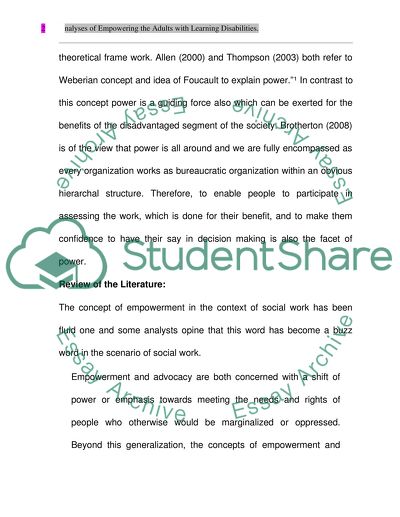Cite this document
(“Empowering the Adults with Learning Disabilities Assignment”, n.d.)
Empowering the Adults with Learning Disabilities Assignment. Retrieved from https://studentshare.org/sociology/1530861-empowering-the-adults-with-learning-disabilities
Empowering the Adults with Learning Disabilities Assignment. Retrieved from https://studentshare.org/sociology/1530861-empowering-the-adults-with-learning-disabilities
(Empowering the Adults With Learning Disabilities Assignment)
Empowering the Adults With Learning Disabilities Assignment. https://studentshare.org/sociology/1530861-empowering-the-adults-with-learning-disabilities.
Empowering the Adults With Learning Disabilities Assignment. https://studentshare.org/sociology/1530861-empowering-the-adults-with-learning-disabilities.
“Empowering the Adults With Learning Disabilities Assignment”, n.d. https://studentshare.org/sociology/1530861-empowering-the-adults-with-learning-disabilities.


